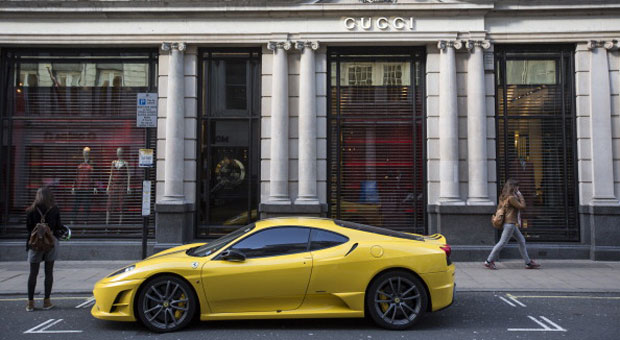Richest 1% 'to own more than everyone else combined'
Oxfam warns that such 'staggering' global inequality will set the fight against poverty back decades

A free daily email with the biggest news stories of the day – and the best features from TheWeek.com
You are now subscribed
Your newsletter sign-up was successful
The richest one per cent of people will soon own more than the rest of the world's population combined, unless urgent action is taken to fight global inequality, according to a report from the charity Oxfam.
Global wealth is increasingly concentrated in the hands of a small, elite group, with the richest one per cent currently holding 48 per cent of global wealth, it says. This is predicted to rise to over 50 per cent by 2016 if current trends continue.
Oxfam warns that the failure to tackle inequality "will set the fight against poverty back decades" at a time when one in nine people do not have enough to eat and over a billion people live on less than $1.25 a day.
The Week
Escape your echo chamber. Get the facts behind the news, plus analysis from multiple perspectives.

Sign up for The Week's Free Newsletters
From our morning news briefing to a weekly Good News Newsletter, get the best of The Week delivered directly to your inbox.
From our morning news briefing to a weekly Good News Newsletter, get the best of The Week delivered directly to your inbox.
"The scale of global inequality is quite simply staggering, and despite the issues shooting up the global agenda, the gap between the richest and the rest is widening fast," said Oxfam's executive director Winnie Byanyim.
The data was released ahead of this week's World Economic Forum in Davos, Switzerland. The charity plans to use the report to call for urgent action to combat global inequality, including clamping down on tax evasion, introducing a living wage and equal pay legislation.
"It is time our leaders took on the powerful vested interests that stand in the way of a fairer and more prosperous world," said Byanyima, who will co-chair the event. She warned that while global leaders continued to highlight the issue of inequality, "we are still waiting for many of them to walk the walk".
Extreme inequality "is not just an accident or a natural rule of economics," Byanyima told The Guardian. "It is the result of policies and with different policies it can be reduced."
A free daily email with the biggest news stories of the day – and the best features from TheWeek.com
-
 Democrats push for ICE accountability
Democrats push for ICE accountabilityFeature U.S. citizens shot and violently detained by immigration agents testify at Capitol Hill hearing
-
 The price of sporting glory
The price of sporting gloryFeature The Milan-Cortina Winter Olympics kicked off this week. Will Italy regret playing host?
-
 Fulton County: A dress rehearsal for election theft?
Fulton County: A dress rehearsal for election theft?Feature Director of National Intelligence Tulsi Gabbard is Trump's de facto ‘voter fraud’ czar
-
 Labour shortages: the ‘most urgent problem’ facing the UK economy right now
Labour shortages: the ‘most urgent problem’ facing the UK economy right nowSpeed Read Britain is currently in the grip of an ‘employment crisis’
-
 Will the energy war hurt Europe more than Russia?
Will the energy war hurt Europe more than Russia?Speed Read European Commission proposes a total ban on Russian oil
-
 Will Elon Musk manage to take over Twitter?
Will Elon Musk manage to take over Twitter?Speed Read The world’s richest man has launched a hostile takeover bid worth $43bn
-
 ‘Economic violence’: inequality gap widens as billionaires cash in during pandemic
‘Economic violence’: inequality gap widens as billionaires cash in during pandemicfeature As the super-rich get richer, 99% of the world’s population are worse off
-
 Shoppers urged not to buy into dodgy Black Friday deals
Shoppers urged not to buy into dodgy Black Friday dealsSpeed Read Consumer watchdog says better prices can be had on most of the so-called bargain offers
-
 Ryanair: readying for departure from London
Ryanair: readying for departure from LondonSpeed Read Plans to delist Ryanair from the London Stock Exchange could spell ‘another blow’ to the ‘dwindling’ London market
-
 Out of fashion: Asos ‘curse’ has struck again
Out of fashion: Asos ‘curse’ has struck againSpeed Read Share price tumbles following the departure of CEO Nick Beighton
-
 Universal Music’s blockbuster listing: don’t stop me now…
Universal Music’s blockbuster listing: don’t stop me now…Speed Read Investors are betting heavily that the ‘boom in music streaming’, which has transformed Universal’s fortunes, ‘still has a long way to go’